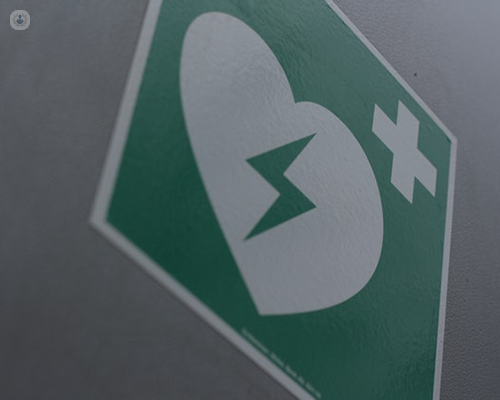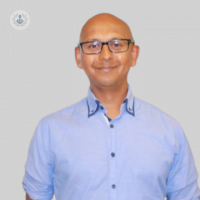What are the most common causes of heart failure?
Written by:In this expert guide to heart failure, highly respected consultant cardiologist Dr Kaushik Guha who is expert in valve disease and heart failure, sheds light on the principal causes and treatment options. The leading specialist also details the most common symptoms of heart failure and explains when emergency treatment is required.

How is heart failure defined?
Heart failure is defined as a triad; the patient normally reports symptoms including breathlessness, fluid retention and palpitations. There are also overt clinical signs when the patient is examined and an abnormality found on cardiac imaging. The most readily available investigation in terms of cardiac imaging is an ultrasound (echocardiography) of the heart.
What are the most common causes of heart failure?
In terms of leading causes, the previous literature indicates globally these are hypertension (high blood pressure) particularly if uncontrolled for lengthy periods of time and coronary artery disease. Coronary artery disease is the umbrella term for patients who suffer atherosclerosis (furring up of the heart arteries) and who have suffered a heart attack or have undergone percutaneous coronary intervention (PCI "stents") or coronary artery bypass grafts (CABG).
However, beyond these leading causes of heart failure, there are many more common forms including valvular heart disease, genetic predisposition, side effects of chemotherapy and lifestyle factors including excessive alcohol consumption. The cause of a patient's heart failure can only be identified following rigorous specialist assessment.
What are the symptoms of heart failure?
The main symptoms of heart failure include:
- exertion breathlessness
- a deterioration in exertional capacity ('a lack of puff')
- fluid swelling within the ankles or abdomen
- a need to prop oneself up on more pillows
- nocturnal cough
- breathlessness or wheezing
Separately the patient may also report chest pain, palpitations (a send of the heart racing and skipping, fluttering), light headedness or even syncope (blackouts or a loss of consciousness).
No one symptom in isolation is representative of heart failure, but this possibility should also be considered especially in patients who report deteriorating breathlessness, which has not been corrected with other treatment such as antibiotics or steroids.
When is emergency treatment required?
Emergency treatment is based on two main issues which confront patients with heart failure.
Heart failure is a chronic disease like diabetes or asthma and does not disappear from the patient. It is associated with acute periods of 'decompensation' of illness which can either be associated with significant fluid retention in the lungs, abdomen or legs or life threatening rhythm disorders which cause syncope (blackouts), a patient to feel unwell or even in extreme circumstances, cardiac arrest. A cardiac arrest means the patient is at risk of sudden cardiac death.
How is heart failure treated?
Fluid retention can be managed with diuretics (water tablets) administered intravenously. Rhythm disorders may require consideration of specialist treatments such as pacemakers or defibrillators. Both admissions may be lengthy, challenging for all and potentially life threatening hence the need for careful long term care of the condition.
Surgery within the field of heart failure is principally only reserved for patients who have coronary artery disease and who require a bypass, or those patients who suffer from severe valvular disease. Such patients are identified after careful clinical assessment, appropriate investigations and cardiac scans.
The surgeon will fix the issue in question, but it is important that the patient is reviewed by a cardiologist after surgery to ensure that heart function is as optimal as it can be and that the patient is on appropriate long term cardiac medication.
Beyond open heart conventional surgery, there are new keyhole (percutaneous) techniques for dealing with valve disease. These new techniques are delivered by dedicated specially trained cardiologists and may be the treatment of choice for some patients, after careful clinical selection. The role of keyhole valve techniques is growing and technology within this field is evolving rapidly.
If you are concerned about your heart health and wish to book a consultation with Dr Guha, you can do so by visiting his Top Doctors profile.


